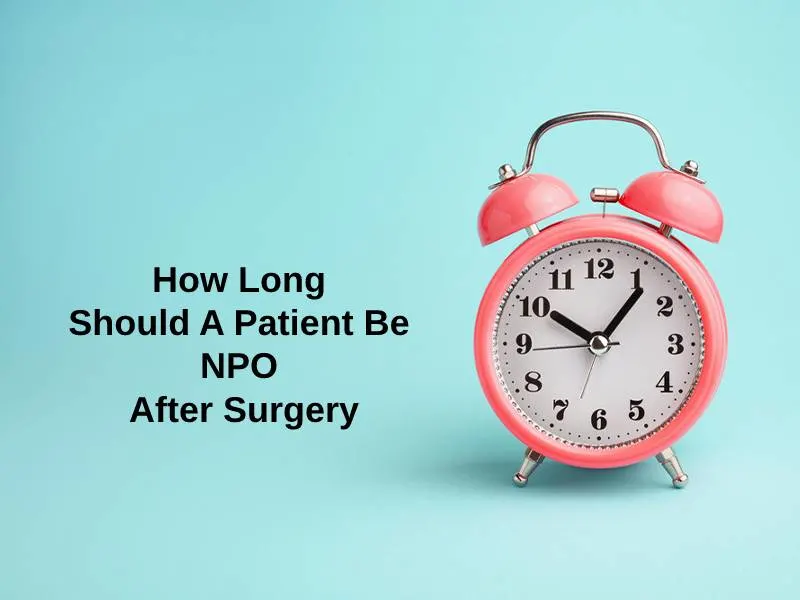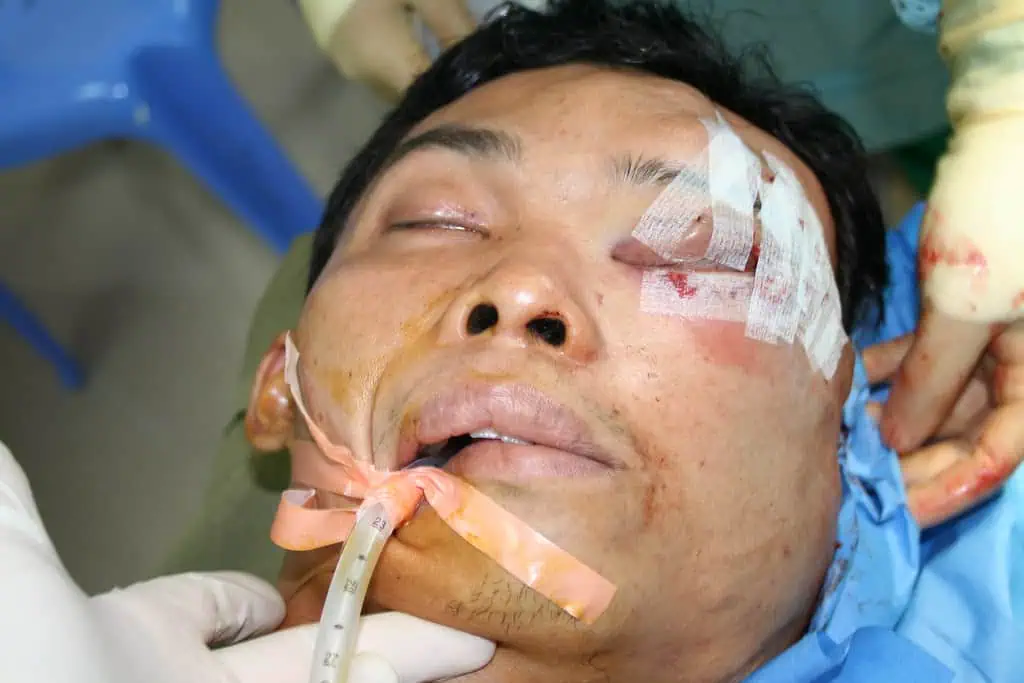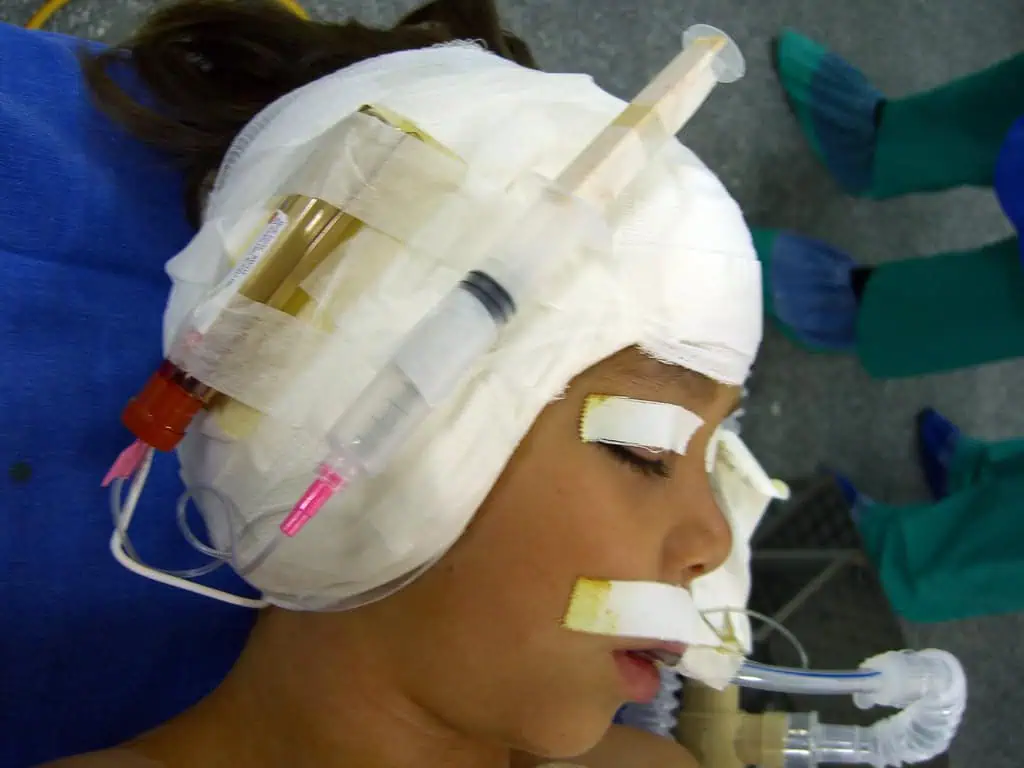Exact Answer: 48 hours
The treatment of the surgical patient requires an integrated comprehension of the pathophysiological changes that take place postoperatively. During this time, the immune system struggles to achieve systemic balance in the body despite multiple iatrogenically induced alterations. If the right environment and therapies are given, the body can eventually correct these imbalances.
The surgeon has two goals in the postoperative period. First and foremost, he or she needs proper treatment to preserve homeostasis and prevent complications. Second, he or she must spot unfavorable patterns early in the recovery process and act quickly to avoid more compromise. The surgical patient should be able to return to his or her pre-surgery level of function with proper treatment.

How Long Should A Patient Be NPO After Surgery?
| Surgery affects | Time |
| Unable to eat | 1 to 3 days |
| Avoid driving | 24 to 48 hours |
| Free from anesthesia | 24 hours |
Patients with gastrointestinal dysmotility should be held off food or NPO for 48 hours or before their nausea symptoms subside. A nasogastric tube should be implanted and put on suction for those who are seriously symptomatic with continued vomiting and distention. NPO can be described as “Nothing goes through the mouth”. This means that you can’t intake solid food items through your mouth. So, do consult your doctor after the surgery is done.
The tube may be removed and the patient progressed to a simple liquid diet as gastric motility recovers, as shown by reduced NG production and resolution of nausea. Before oral advancement, the patient should consume at least 100 grams of glucose per day in the form of 2 liters of 5% dextrose; this will help to prevent protein catabolism during the fasting cycle.

According to an anesthesiological study, it is concluded that individuals have to avoid intaking solid food items 8 hours before NPO and need to avoid intake of clear liquids for about 2 hours. Clear liquid comprises plain water, fruit juices, tea, black coffee or caffeinated drinks, and carbonated drinks. If you intake water before a procedure within 2 hours then you might face gastric issues and experience a higher gastric pH in comparison to those who intake water 4 hours prior to the procedure. The volume of liquid intake is the total amount of liquid consumed. Some surgical measures which are not considered to be urgent can be postponed till the NPO status is available.
Why Does It Take This Long For NPO After Surgery?
NPO method is adapted for patients who are having gastrointestinal surgery so that the process doesn’t get complicated. The most common explanation for NPO orders is to avoid aspiration pneumonia, People who are about to have general anesthesia, those who have weak swallowing muscles, or those who have a gastrointestinal hemorrhage, gastrointestinal blockage, or severe pancreatitis are at risk for this.
With the overdose of alcohol, you might experience vomiting and excessive bleeding should when they go through NPO. The ingestion of any oral fluid for around two to six hours before surgery is prohibited in many fasting procedures. However, a large retrospective study was conducted at a hospital. There it was discovered that there are pure oral fluids that can’t be controlled till it is transferred to the theatre. Then, it can efficiently reduce the chances of nausea and vomiting while not increasing the risk of whimsy.
The restoration of gastrointestinal motility should be verified before moving on to a normal diet. This is shown by the development of flatus as well as the presence of a non-distended abdomen. If the long-term deficiency is suspected or observed, nutritional assistance should be sought as soon as possible.

Enteral feeding, either through a nasal feeding tube or a surgically inserted feeding jejunostomy, is the preferred method of administration, assuming that the gastrointestinal tract is functional. If the enteral route is unable to maintain sufficient nitrogen balance, hyperalimentation by a central venous catheter is used.
Conclusion
NPO orders are given 6 to 12 hours before surgery and last until the patient is released from the recovery room. However, they can last for more days if you take proper medications or oral post-meds. Food NPO intervals are longer than liquid NPO intervals. The liquid which you intake is necessary to discover the amount of liquid consumed. If there are not so urgent surgical operations then postpone it. Total parenteral nutrition may be started if a patient has been without food or water for an extended period (TPN).